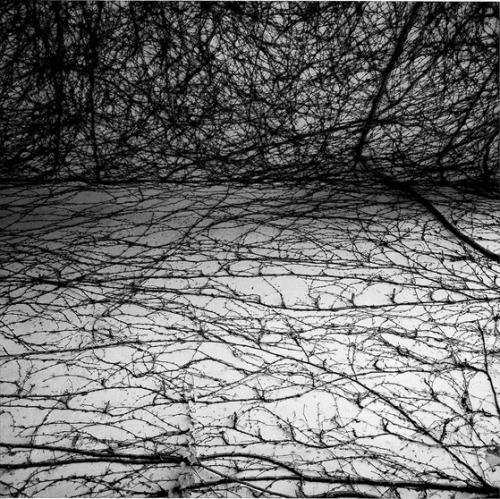Graciela Iturbide: NaturataWhen Adam and Eve, on being expelled from Paradise, had to live on their
Graciela Iturbide: NaturataWhen Adam and Eve, on being expelled from Paradise, had to live on their own means, far from the bountiful delights that God had given them with full hands, did they perhaps desire to have another garden, or did the mere idea seem unbearable?Perhaps, after refusing all their life to have one, tormented by the memory of the serpent, already old and spent, burdened with experience, knowledge, pain and one or two joyful memories, they finally yielded to the temptation of recreating their first abode and made themselves a garden, which, though modest, must have reminded them, like no other thing, of the innocent and luminous days of the beginning. Perhaps only then, on seeing each other within that second garden, created with their own hands, did they fully understand themselves and accept their destiny. Maybe then, for the very first time, they went from complicity to love, or fondness, at least.What would that second garden have looked like, the first human garden, perhaps a vague and imperfect remembrance of the Garden of Eden? Small to begin with, embraceable at just one glance, and monotonous, incapable of wholly detaching itself from the adjacent orchard, with plants aligned clumsily or strewn here and there without grace, and, nevertheless, already a true garden, with that winged and gratuitous little something that all gardens have and which consists of an intimate connection with the sky, with the unreachable, the unattainable, that something which seems to reject us.That which the orchard, being obtuse, pretends not to know, so engrossed and entranced as it is in its frantic task of stealing from the earth whatever it can, and which the forest itself ignores. Embellished by its strength, the garden, apparently fragile and useless, does not forget.Man, through the garden, reclaims heaven and cultivates it, thus bringing it closer to himself. To cultivate a garden is a means of remembering one’s own stature, of ceaselessly correcting oneself. It is a difficult task, because a garden is always threatened by wild weeds, turmoil and unruliness.That’s precisely what Adam and Eve must have discovered when they cultivated their own garden. They surely must have understood that being a gardener is a bit like being a therapist, an educator, or an orthopedist; that every garden is a bit like an infirmary; that plants, as well as men, tend to be commonplace and trivial, thankful for their anonymity, and one must straighten them up, elevate and constrain them. Ropes, boards, nets, flowerpots, cloths, stones: everything serves to prevent vegetation from plunging into the magma and thus show us its individual form, its own personality. For, how tiring it is to have a soul, how hard it is to define one’s boundaries! Every garden is always being altered, always being repaired, it never seems to come out of the shipyard, of wholly and completely setting sail.Only the Garden of Eden is complete, each corner tidily finished. All gardens strive to be like it, each in its own way and in its own style, and in them, in contrast to the first, the struggle with the serpent does not happen only once and forever, but is continuous, daily, diffuse and its success is uncertain. http://www.gracielaiturbide.org/en -- source link
Tumblr Blog : 5centsapound.tumblr.com
#graciela iturbide#gardens#naturata








